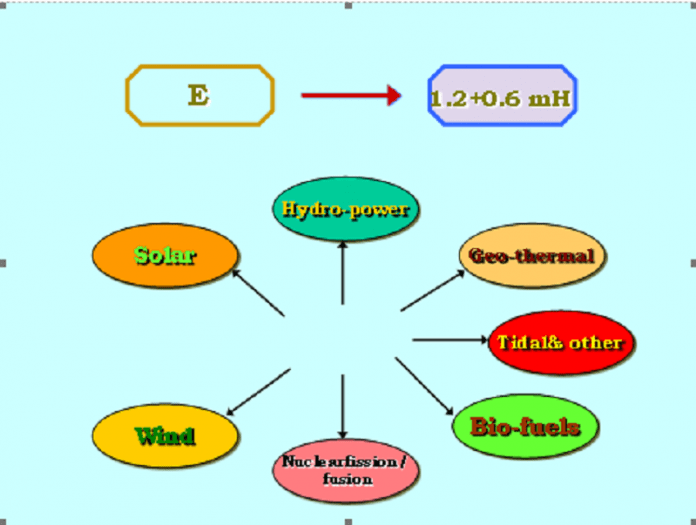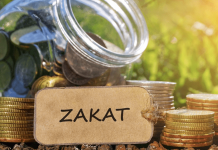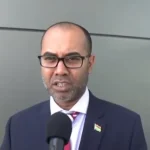With climate change intensifying and scientists warning that humanity is running out of time to limit global warming to 1.5°C over pre-industrial levels, 2021 has been a bad year for the planet. Can COP26 succeed in reversing that trend?
1. The PM has, at the inter-ministerial council meeting of 28th September 2021, declared Mauritius as being in a ‘state of climate emergency’. LIKE THE REST OF THE PLANET!
Mauritius can thus contribute as an example at COP 26 of what needs to be done.
Mauritius as a SIDS (Small Island Developing State) falls in the category of countries whose “contribution” to global warming is small (due to our small size and population) but like all small islands in likely to suffer most (climate change, sea-level rise, more severe floods, droughts, cyclones etc)
2. WHAT COP26 can ACHIEVE
- Secure global net zero by mid-century and keep 1.5 degrees within reach
Countries are being asked to come forward with ambitious 2030 emissions reductions targets that align with reaching net zero by the middle of the century.
To deliver on these stretching targets, countries will need to accelerate the phase-out of coal, curtail deforestation, speed up the switch to electric vehicles (which we have in 2 successive budget failed to achieve) and encourage investment in renewable (solar, wind, biofuels) for which we are well ahead.
- Adapt to protect communities and natural habitats
The climate is already changing and it will continue to change even as we reduce emissions, with devastating effects. At COP26 we need to work together to enable and encourage countries affected by climate change to protect and restore ecosystems and build defences, warning systems and resilient infrastructure and agriculture to avoid loss of homes, livelihoods and even lives
- Work together to deliver
We can only rise to the challenges of the climate crisis by working together.
At COP26 we must accelerate action to tackle the climate crisis through collaboration between governments, businesses and civil society.
To keep global warming below 1.5°C this century, the aspirational goal of the Paris Agreement, the world needs to halve annual greenhouse gas emissions in the next eight years.
3. HOW MAURITIUS CAN SUCCEEED THE ENERGY TRANSITION TO FULLY RENEWABLES
a.How to achieve sustainable energy supply for all 7.1 billion humans and for the 1.2+0.6 million in Mauritius?
b.From which main source? From wind, solar, oceanic& geothermal, nuclear fission/ fusion, bio-fuels, new sources, a combination?
c.Using which renewable energy production technologies?
d.How to operate on a fully industrial scale?
e.Who is to do that, with what resources? Within what time-frame (i.e. overlapping with the end of the petrol era, which may come sooner than expected)
WITH WHAT END AIM?
This crucial policy question must be adequately answered at National and Earth levels
- Such a move from a fossil-energy civilisation into a renewable-energy one will contribute to restoration of the Earth- assuming climate changes can be reversed!
- An incomparable economic advantage will go to the country/countries that will first develop such capability.
- Will that be USA? EU? Russia? China? India? Japan? S. Korea? The Eastern Europeans? Brazil? South-Africa? Egypt? Australia? Malaysia? Taiwan? MAURITIUS??
Research and development needed in these fields:
- Electric and Solar-powered cars, to fully replace diesel and petrol vehicles;
- Bio-fuel planes;
- New local production (Bio-gas) villages;
- Electricity from solar/wind/bio/hydro for Rail/Metro systems, for back-up;
- Integrated-Supply for Cities& Industry from SOLAR/WIND/HYDRO/BIO/GEO/ (+Fossil fuels as back-up only during transition).
Dr Michael ATCHIA
NOTE : Les points de vue exprimés dans cette rubrique ne reflètent pas nécessairement ceux de la rédaction et n’engagent que les auteurs eux-mêmes.




![[Message de l’Eid-Ul-Fitr 2024] Atteindre la piété… Et après ???](https://sundaytimesmauritius.com/wp-content/uploads/2023/10/Bashir-new-218x150.jpg)


![[Democracy Watch Mauritius] The Rwanda genocide started 7th April 1994, 30 years ago. Has humankind learnt the lesson? Consider Israel’s action in GAZA today!](https://sundaytimesmauritius.com/wp-content/uploads/2024/03/democracy_0-218x150.jpg)







